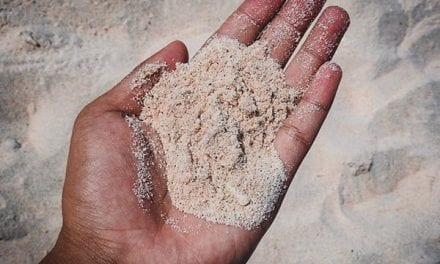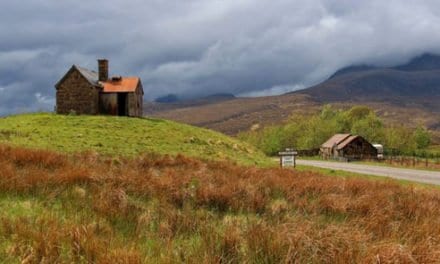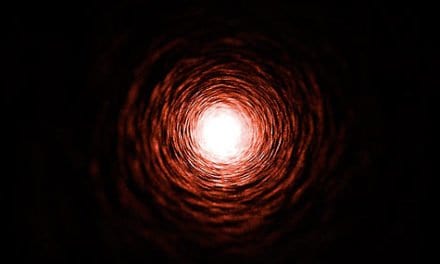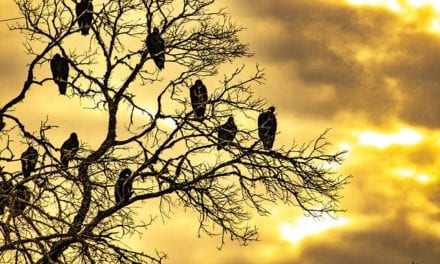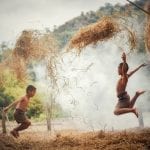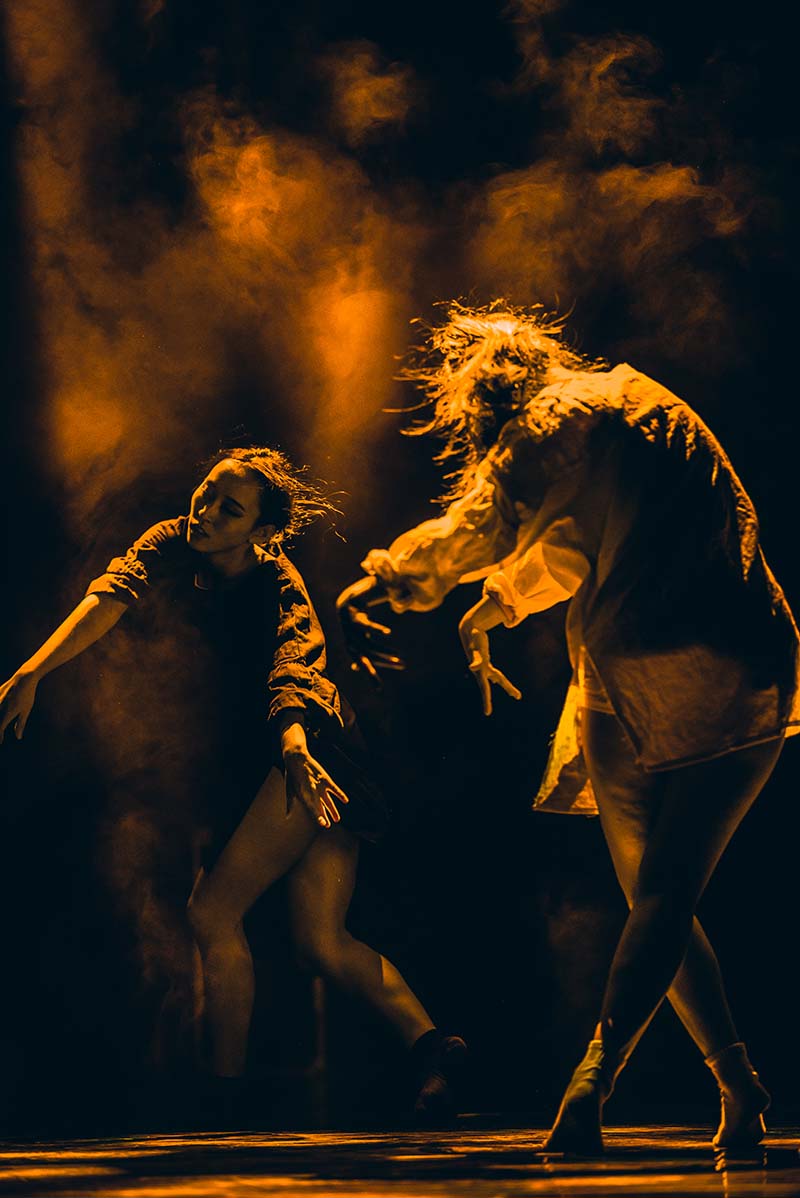“Well, there was that one time, of course,” Fran Lewis lowered her voice, but her eyes sparkled as the memory floated to the surface, bubbling like the champagne clasped in her hand. Fiona locked eyes with Fran and found she could not move. Her body felt weightless in George’s spotless, new armchair. Out of all the guests, wearing wine on their latest fashions, spouting politics and philosophies, Fiona had met someone with something real to say.
“That one time in the cornfield…” As Fran Lewis’s words left her mouth, describing early-nineties Nebraska, Fiona could imagine the cornstalks bowing in the late summer breeze. She could see her fingers grazing the folded leaves, and longed for those green fields and fresh air, a blue sky filled with majestic white clouds. Earlier, Fran Lewis had mentioned to Fiona that she lived outside the city most of her life, away from all its man-made artificiality – and it showed. Fiona smiled as the mind-numbing boredom she felt at all George Borden’s parties melted away. She wasn’t stuck in another corner, talking to another co-worker at another gathering, dreaming of another place, and another life, one that wasn’t so material and dead. Instead she traveled into Fran Lewis’s eyes. Those eyes coaxed her out of her party-and-work driven, mid-thirties shell, and pulled Fiona into the life glowing inside of them.
“Millie Martins. I still remember that awful name! She and her friends were always hanging around the cornfield,” Fran said smiling, and Fiona could see the eleven year old Fran emerging out of the light in her eyes.
“Millie Martins, Rachel Conway, Kat Davers. A girl we all called Mags, and a big girl with a mask of pimples called Coots.” The girls materialized in front of Fiona as Fran Lewis listed them off. Millie Martins, whose confidence overshadowed her occasional kindness, acted as the ringleader and had a natural, beautiful face hidden in makeup. Rachel Conway and Kat Davers were joined at the hip and often gossiped while they smacked gum and stared at painted fingernails that changed color every week. Mags was the funniest, knew how to smile, and said clever things that Fran wished she had thought of first. And Coots was Coots. Fran believed that they gave her the nickname because of her last name, but she couldn’t remember for sure.
“I only remember that her name made me think of cooties crawling through her greasy blond hair and in the folds of her skin,” Fran shivered. She hated Coots. Not because of her looks, but because Coots had a mean laugh that cut like glass.
But Fran’s hatred of Coots didn’t keep her from looking at the rest of Millie’s pack with a quiet awe that bordered on stone cold fear. “Millie and them were ‘older girls,’” Fran told Fiona. They smoked stolen cigarettes, wore tight shirts with no jackets and their midriffs exposed to the chilly air. And despite that, they never shivered because “girls like that never got cold.” They didn’t seem to have mothers or fathers or homes, but made it look like it was better not to have them. They traveled in the shadows of town, living full and free lives.
“It was nearly fall, and I was out with Maureen.” Maureen was Fran’s friend. Her best friend – the kind with exchanged bracelets made from knotting multi-colored strings on their fathers’ clipboards, tied tight on ankles and wrists, never to come off all summer long, faded and frayed, and worn like badges. Maureen and Frannie.
“We used to call each other Maury and Frankie,” Fran giggled. “We thought it was hilarious that they sounded like ‘old man’ names, hiding our ‘young-lady insecurities,’ as our parents’ put it.” The names made them feel clever in a way that no one else could understand.
“This was before middle school. In middle school, Maureen got a bra and a razor, and my mom kept me in pink ribbons and pretended I didn’t have hair sprouting all over my body,” Fran closed her eyes, put a hand to her forehead and shook her head with embarrassment. “I snuck into my parents’ bathroom to steal a razor after school, praying to the good Lord that my mother and brothers wouldn’t notice.” Maureen had looked at the uneven shave of Frannie’s legs, and laughed at her in such a way, that Frannie – later, when the friendship dissolved – thought was cruel.
“I can’t believe I’m telling you all this, but I swear, it’s relevant to your question. I swear, Finny,” Fran’s words were beginning to slur as she reached out and touched Fiona’s arm. Fiona didn’t know at what point Fran Lewis started calling her “Finny.” She filled Fran’s champagne and her arm felt warm where Fran had touched it, as if part of the memory had escaped and been absorbed through her skin.
Fiona never had a nickname before. She’d never been one to pry into the lives of strangers at parties. And she never before had the guts to ask anyone, friend or stranger, the moment when he or she had been most afraid.
But Fran Lewis, with her big smile and welcoming eyes, had been easy to meet, and even easier to talk to. It was as if they’d recognized each other from childhood. And so, when the topic came up, Fiona had asked her.
Fran’s words kept flowing, loose and unfiltered.
“There were only two days of summer left, and every kid in the neighborhood felt it. We all clung to those days like an old blanket,” Fran said. They weren’t scared, but edgy about the approaching end and the new beginning at school, where everything would be different. That’s why Frankie and Maury weren’t the only ones at the playground at the edge of the cornfield, waiting for something to happen.
Frannie swung lazily on the last unbroken swing, staring at Millie Martins and her friends smoke cigarettes and laugh and check their makeup-faces in small, colorful compacts. The older girls made side-glances around the field, trying to act casual. But Frannie could tell they were nervous – waiting for adults to catch them, or boys to appear, or some little kids to rat them out. The nervousness fueled them, made them jumpy and skittish, even though they tried to keep up their facade with forced laughter.
Frannie kicked her dangling legs half-heartedly, smiling, quietly wishing she was Millie.
Fiona imagined herself as little Frannie – stringy arms, big crooked-tooth smile, scrawny legs covered in a fuzz of baby hair, laughing as she arm-locked Maury. And she imagined the fear… the excitement of being close to Millie Martins and her friends.
“Millie and the girls started to look bored, until they heard the boys. They were out in the cornstalks. The boys. But no one knew it was them, at first. They made sounds like owls and crows, then ghosts.” The sounds made Millie and her friends scream and laugh and feign anger even though they were all delighted to have some entertainment.
“It was Rob and his friends. He had the most beautiful eyelashes I’d ever seen. Rob Gunther. He lived down the road from me and I was mad for him. Just mad,” Fran sighed as she took a long sip of champagne.
Through whispers in a starlit bedroom, cricket screams drifting through an open window with the nighttime breeze that their sweaty bodies welcomed like a dip in a cool pond, Frannie had spilled her guts about Rob into Maury’s eager ears. So, Maury knew all about Frannie’s fascination with Rob’s dark eyes, housed by glorious eyelashes that crinkled with an easy smile.
Maury told Frannie it was Rob in the cornfield, with a sly smile. It was dusk and Maury knew that he and the boys were done working for the day – done helping their dads and uncles pull the tops off cornstalks, their skin burnt and peeling and scabbed a thousand times over with tiny corn-leaf cuts, thin and itchy.
Rob Gunther and Tall Paul and Benji and the others whose names Fran Lewis forgot. Or at least she said she did, but Fiona could see it all swimming in her head – names lost in her focus on Rob and his eyelashes. Middle school boys. At least for a little while longer. In a couple of days they’d be “high school boys,” just as Millie, Rachel, Kat, Mags, and Coots would be “high school girls.”
The boys got quiet. Silent and creeping, they waited for an opportunity to grab one of the older girls, pull her into the stalks, and tickle her until she screamed “uncle.” Millie wanted Coots to go back for her compact. Millie had dropped it when they got scared and ran, and all the girls knew that the boys wouldn’t grab Coots. They would ignore her like they’d always done because who they really wanted was Millie with her slender midriff and wafting body spray, or Mags, who always smelled like peppermint gum and strawberry lip gloss, or even Rachel and Kat with their plain faces that they made up with saucy attitudes. But not Coots with her bad skin slathered in cheap foundation that caked on her pimples like batter, and her tight clothes that only made her seem larger. And that mean, mocking laugh. It didn’t help that her voice came out rough and gritty, like it got rubbed in sand before escaping her throat.
But Coots wouldn’t go towards the cornfield. Instead, she flipped her greasy hair and said in a defiant voice, like it was a big joke that wasn’t on her, “Pssh, not me.” And laughed, like she was better than all of it, and yet a part of it.
The boys whispered, “Mil-lieee,” so that it drifted like the mist in a horror movie through a moonlit forest.
“And I don’t know what came over me, I swear, Finny. I don’t. Because I was shy and awkward and just a kid, but thinking about the end of summer and the end of Robbie and Millie at my school, I must’ve had a burst of crazy, because I told Maury, ‘Let’s tell Millie that we’ll get her compact, and then scare the daylights out of those boys!’”
“Of course, Maury didn’t want to,” Fran explained. Maury was afraid of the big spiders and the beetles (which Maury called “cob hobbers”), and even though she wouldn’t say it, she was afraid of the boys. In daylight, they were only boys; Friendly with girls like them, flirty and clumsy with the older girls. The boys treated them like their little sisters, while in Frannie and Maury’s mind they were their secret boyfriends.
“We had played with those corn-tussling boys a hundred times before. But there is something strange about the cornfield at dusk. Hearing the boys in the corn in that weird light coated everything like magic dust.” The dusk left Maury unsettled and charged Frannie like lightning. Even the older girls felt it, though they buried it in their excitement, daring each other to creep back towards the corn to offer the “corn ghosts” a cigarette in exchange for mercy.
Frannie ran up to the girls, her heart pounding in her chest. Maury followed like she was tied to Frannie with friendship-bracelet string.
“I’ll get your compact, Millie!” was all that Frannie could call out, and even with those few words her cheeks burned and her palms became slick.
“I couldn’t even look at them,” Fran said to Fiona, hiding a smile behind thin fingers, dainty and manicured. Fiona wished she could see Fran’s palms, to see if there were rough edges from where she had touched the corn stalks.
Frannie ran up to the cornfield and picked up Millie’s pink, plastic compact. The boys were making sounds again. She stood in front of the stalks, imagined Rob and his eyelashes hiding in the growing dark, and her excitement overpowered her fear. She ran in before any of the boys could grab her, making her own hooting and screeching noises. Maury did her best to keep up.
“But Maury couldn’t stop laughing! And that got the boys laughing. And, I don’t even remember how, but it all turned into a game of hide-and-seek. ‘Manhunt!’ That’s what we called it.”
The other girls joined in, and both the boys and girls ran through the cornstalks, hiding, catching each other and shrieking. Frannie and Maury knew that in the dark they were part of the group, just two more screaming faces filling the blue-black field with squeals of laughter.
No one had flashlights. But the older girls carried lighters, and they used the tiny flames to tease the boys, and to signal the other girls like blinking fireflies flashing in the corners of their eyes, while Frannie and Maury tripped their way through the dark.
It wasn’t long before Frannie lost Maury, but she didn’t mind. She didn’t feel alone. She’d never been less alone in her life.
“I could hardly see. I could make out the tops of the stalks by the light of the moon, but couldn’t get my bearings.” A large body that she thought was Coots started cracking towards Frannie, so she quickly crouched down, but lost her balance. She toppled into someone who was crouched behind her. The person said, “Shh,” so quietly that Frannie could not tell if it was one of the boys or girls.
“But when I thought I heard Coots coming again, making some crackly-moaning noise, I held onto that kid so tight that my whole body hurt!” Fran laughed at that, spitting some of the champagne onto her chin.
Fiona knew the kid wasn’t Maury, even though Fran didn’t say it. Maury probably ran back to the playground as soon as they got separated, Fiona thought. Maury probably wasn’t made of the same stuff as Frannie. If Fiona had been Frannie’s best friend back then, running through the corn, they would never have gotten separated. Fiona would be able to keep up with Frannie, to go along with every scheme seamlessly, as if they were one. Frannie and Finny. Frank and Finn. Laughing and making crow-calls in the dark, chasing the older girls and boys. Fiona never had a sister, but she knew that’s what she and Frannie would be. Sisters.
“I thought it was Millie Martins, to tell the truth. I just assumed it was her. I would’ve sworn on a stack of Bibles all over the place that it was Millie. But she didn’t say a word.”
They held hands, with the mystery kid leading. They tiptoed through the stalks until Frannie realized that the sounds of screaming and laughter were getting farther away. Too far away. They were going deeper into the field.
“And I kept saying, ‘Millie! Millie! We’re going the wrong way!” Fran’s eyes were growing larger, her voice rising. “She wasn’t acting right. I thought she was just turned around. But her grip on my hand was tight. Too tight.”
The kid’s nails were digging into Frannie’s hand, but Frannie didn’t say anything because she was certain it was Millie Martins. “And how could you tell Millie Martins to let go of your hand?” Fran asked as if Fiona didn’t understand, but she did.
“I couldn’t see a thing, but I knew it had to be her. I think because I wanted it to be her so bad. And I wanted Rob to find us, and tackle us. And I wanted to be in on the laughter when he did. I wanted that moment so bad, Finny, and I wanted it to stick deep down inside of me, warm and safe, so that I’d never forget it as long as I lived…” Fiona could feel it as Fran spoke, and the desire grew within her. Fiona wanted it, too. She wanted it so bad.
“But it didn’t happen that way,” Fran said.
Frannie didn’t realize what was happening right away. They heard screams and shouts, but thought it was part of the game. They didn’t know there was a fire until it nearly reached them, and they saw orange flames glowing between the stalks and black smoke reaching for the moon.
Then the corn seemed to be lit up all at once, and smoke was in Frannie’s lungs, and “I was scared,” Fran said. “I was terrified. But that wasn’t the moment that got me. That wasn’t the time I was most afraid.”
“When was it?” Fiona asked, but her voice no longer existed at the party. It was part of the memory, in the cornfield. Fiona held Frannie’s hand tight, too tight, staring at the fire ahead, the wall of heat hitting them. She could feel the burn on her skin. Their hands felt seamless. Frannie turned and looked at her, the light of the fire bouncing off her eleven year old, dirt-streaked face. Fiona could see the confusion then the horror in Frannie’s expression as she realized that Fiona wasn’t Millie Martins or Maury or Kat or Coots or any of the girls in the corn. Frannie’s eyes widened, terror sucking away the little girl features of her face. Frannie yanked her hand away and ran, almost sprinting into the flames until she turned and ran blindly through the cornstalks.
“And she just stood there. Staring,” a voice said, like Frannie’s, only far away and older, speaking out of the cornstalks.
“Who was she? Who am I?” Fiona called out, wanting little Frannie to come back.
“She was me. I mean she looked like me, but she wasn’t. She looked exactly like me, but unafraid, dead. Like she had no life in her. And with a look on her face like she wanted something from me, desperately.”
Fran Lewis pulled her hand from Fiona’s tight grasp. She set down her champagne flute on George’s coffee table, but Fiona didn’t fill it. Then Fran burst into tears.
Fran’s husband heard, came and found her and put his large, protective arms around Fran Lewis. Fiona drifted out of the cornfield, out of the fire, away from Frannie’s terrified look as they locked eyes one last time, and back into her old body. Her old self, with the red, chiffon dress she wore half a dozen times to half a dozen parties.


